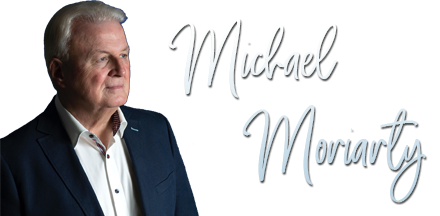It is a fact that leaders have a significant impact on organisational culture and play a pivotal role in guiding organisational goals and priorities. Every organisation has a particular identity which is defined by its ethical framework and cultural identity. From an operational perspective, most organisations will act in accordance with a set of values that it regards as important. Values are the foundation of our understanding of organisational behaviour, attitude and actions. The behaviour of individuals and organisations is guided by an ethical framework and a set of values and both ethics and values are at the core of corporate and individual behaviour.
The differences between ethics and values can be confusing. Ethics is a system of moral principles which guide our daily living. A framework of ethics underlines our daily behaviour and guides our sense of what is right and wrong. Values are a set of beliefs about what we consider to be important while ethics is a set of rules about what is right. Values inform our priorities while ethics is concerned with our standards of behaviour. If ethics is about a framework of moral standards for individuals, organisations and society, our values are more individualistic and guide human behaviour by motivating us to act in a certain way by seeing what is important to us. Values guide our beliefs, behaviour and actions and influence our future. Our actions reflect our values.
Values and ethics are an integral part of organisational behaviour and the best organisations have clearly defined codes of ethics that guide ethical conduct and encourage a culture of decisions and actions within the stated ethical framework. An organisation’s beliefs and principles are informed by its value system which needs to be clearly stated. An organisation’s code of conduct is a clearly defined set of core beliefs that sets out how employees are to act. Values reflect the priorities that govern the organisation and highlights what is important for the organisation. Values show what the organisation stands for and believes in, while also informing its mission, goals and purpose.
Values and ethics both guide and influence organisational behaviour. Leaders must encourage ethical conduct and behaviour, informed by the value system of the organisation. Values such as integrity, accountability, perseverance discipline, kindness and respect guide the behaviour of employees and should be constantly promoted and communicated throughout the entire organisation. They highlight what is expected from all who are employed or engaged in the organisation. They should act as the moral compass for management and employees.
The organisation’s values show what is important for the organisation, what it believes in, what it stands for and they shape an organisation’s vision and mission. Internally, workplace behaviour promoting a positive and safe work environment is always a priority value. Externally, the organisation’s reputational footprint is enhanced when its value system is highlighted and promoted to stakeholders like customers and clients, statutory oversight bodies, investment entities and potential new recruits.
The majority of organisations highlight their value statements so that they can be recognised as living and acting in accordance with their unique values. For example, Accenture (www.accenture.com) states that their values shape the culture and define the character of their organisation. This is true for all organisations because values define the personality of any organisation. What an organisation stands for and what it believes in enhances its sense of purpose and its mission. Values must be aligned with the purpose of the organisation and how it acts. Values, therefore, shape the character of the organisation and new talent will be attracted to an organisation if they identify with those same values.
Clearly defined and articulated values provide a sense of security and assurance to employees while demonstrating integrity and accountability to external stakeholders. The value system and ethical framework guide actions and behaviour and show how the employer is perceived both internally and externally. Values are a crucial element of organisational culture. Employees should both identify with and act in accordance with the employing entity’s value system and therefore demonstrate a greater sense of purpose and engagement.
Well-articulated values will attract good quality talent, will give employees focus and will attract customers and clients. Creating a secure work environment and a trusting relationship with clients, customers and suppliers will significantly promote a positive image for the organisation and set it apart from its competitors. People are becoming increasingly sensitive to company values and will be attracted to those with well-communicated values and clearly defined ethical frameworks. The US ice cream and yoghurt manufacturer, Ben and Jerry’s, (www.benjerry.com) has a very clear value statement: Leading with progressive values across our business.
An organisation’s values can be a powerful asset and leaders, managers and employees should maintain, review and promote them as part of their brand image. Values define the organisation’s identity and the organisation’s ethical framework provides reassurance and commitment if they resonate with clients and customers.
Leaders are charged with maintaining the organisation’s integrity and should lead by example and ensure that all actions and interactions are representative of the organisation’s core values. The leader must be the living example of values in action. Ultimately, the objective is to have a loyal workforce and a loyal client and customer base. Both are more discerning than ever before about ethics, values and social or business identity.
Sound ethical standards and values are the very foundation of every good organisation and its people are the “culture carriers” who maintain and promote a value-driven organisation. All together-ethics, values and people -central to every organisation’s success. The best leaders will prioritise all three.

